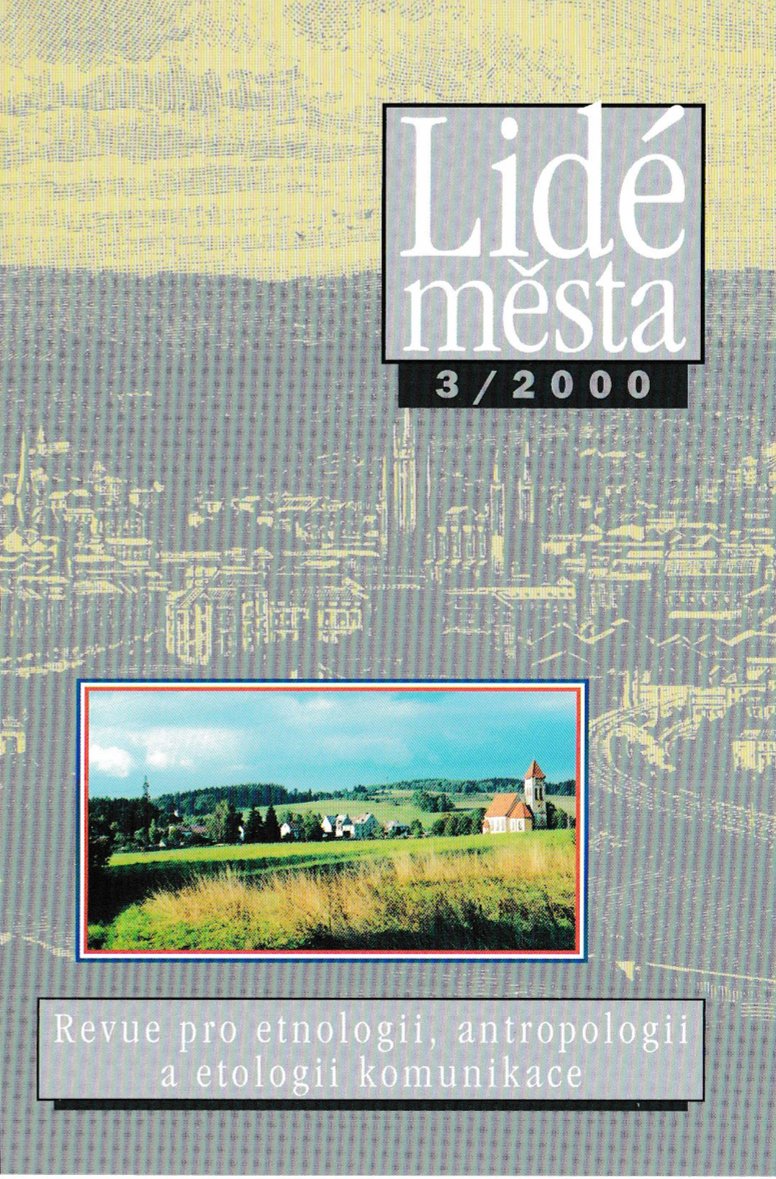Town or Community?
DOI:
https://doi.org/10.14712/12128112.4040Abstract
The explanation of the notions 'Gemeinschafť (community) and 'Gesellschafť (society) from Tönnies's positions. The writer's idea is based on the assumption that human behavior has since the most ancient times a talent for both of these links. The link of the type 'Gemeinschafť appears inside intimate communities of the kinship character, while the link of the type 'Gesellschafť appears in the inter-group non-intimate contact at the level of ceremonial assemblies of tribes as well as random contacts with foreigners. With this background the writer follows the concept of "enemy," aggressiveness and distinction into "them" and "us," the role of rituals, myths and cultural patterns in self-identification and group distinction. Attention is paid to both types of links in town, in the cross-section from the ancient era to the present time. He highlights three strategies of the building of relationships in urban society: separation and mask of indifference as a self-defense against a pressume by a mass of people among whom the urban resident lives, a strict distinction of the zone of intimacy and public zones as well as the need to be easily and rapidly oriented who of many people enjoys authority in this or that situation. Industrial revolution which triggered a social experiment which on the one hand liquidated the social basis of the community of the type 'Gemeinschafť, namely a several-generation family, and put forward a Utopian project of the welfare state ready to take care of every man on the other. Nowadays few things have remained from the ideological arsenal of these experiments. The distinction between 'Gemeinschafť and 'Gesellschafť has vanished in the global village. In the mass society a caricature of democracy combines with the defense of the values of traditional community, mainly represented by mafia. In the course of a number of previous clecades inter-generational solidarity has been virtually liquidated in the major part of the world. The post-industrial era has seen an end of the myth of originality as a sense of human life. In the past two centuries, which means exactly since the era of Napoleon wars, diverse types of projects trying with maximum energy to create a "new man" have been invented and, unfortunately, with an equal energy materialized . This has been the homo economicus, the communist, the man of a special type, the blonde beast, the child of love and flowers, the last generation, or permanently sustainable ecoactivist, to name but a few. However, all of this has been survived by the conformist, the "old man." Despite constant defeats he has come through history and now he is doing extremely well, actually much better than ever before.
Downloads
Published
How to Cite
Issue
Section
License

This work is licensed under a Creative Commons Attribution-NonCommercial-NoDerivatives 4.0 International License.



